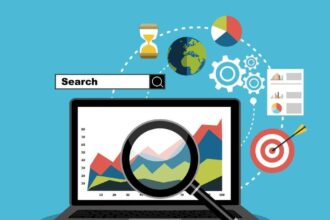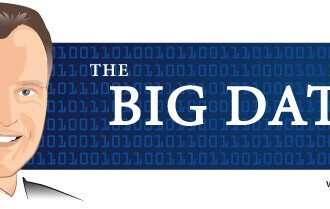Big data has become a popular topic, particularly in the business community. It’s become a buzzword in its own right, but it also describes an entire category of advancements in the world of data collection and interpretation. Though to many, the idea of “big data” is still fuzzy, countless developers are pouring their efforts and resources into advancing our collective big data capabilities.
Big data has become a popular topic, particularly in the business community. It’s become a buzzword in its own right, but it also describes an entire category of advancements in the world of data collection and interpretation. Though to many, the idea of “big data” is still fuzzy, countless developers are pouring their efforts and resources into advancing our collective big data capabilities. The future of big data is a bright one, with lots of potential, but how exactly will big data change in the next decade?
Dimensions of Change
First, let’s take a look at the general ways big data will likely evolve, and from there, we can draw conclusions about the specific developments we can expect in the coming years:
- Sophistication. First, we can expect big data to increase in sophistication. This means we’ll be capable of collecting, even more, data than we are now, and we’ll be able to do more things with that data once we have it.
- Utility. Right now, big data is mostly being used for gathering sales data, consumer information, or patient information for medical purposes. But in the future, the number of data applications could skyrocket, reaching areas we didn’t even know could benefit from big data analysis.
- Accessibility. Right now, big data is too complicated and too expensive to undertake, but developers are working on ways to make big data more accessible to average people and entrepreneurs.
- Diversity. Right now, we only have one term to describe “big data,” but the concept will likely branch out into different forms as we find more ways to manipulate it for various uses.
Specific Forms of Evolution
Now, let’s look at some specific changes we anticipate developing over the next decade:
- Increased visualization. One of the most important realms of big data development is visualization. Currently, it’s not hard to gather and store vast amounts of data on your customers, patients, or other target audience, but crunching these numbers and forming an actionable conclusion is difficult—if not impossible in some cases. Visualization can make this data far easier to understand, even for someone not trained in data analysis.
- More privacy concerns—and better ways to address them. As big data starts to become more common and more businesses and organizations attempt to gather more information on the public, there will be an increase in privacy concerns. Correspondingly, there will also be more ways for companies and organizations to address these concerns, such as less intrusive means of gathering data, or more transparent big data policies that the public can access.
- The dawn and application of machine interpretation. Data is important, but what truly matters is the interpretation of that data. Right now, we depend on human interpretation of the information we gather, and let’s face it—humans are flawed. In the near future, we’ll likely see the dawn of machine learning processes that can interpret data on our behalf, forming conclusions without direct human intervention or assistance.
- Data-as-a-service marketing. Data is becoming a specialized commodity, and just as software-as-a-service became a practical and profitable model for hundreds of software applications, data researchers and big data developers will likely pursue a similar subscription-based route of progress. Data-as-a-service is an ambiguous term here, as there are a number of paths of potential development.
- Subcategories of big data. “Big data” is a bit of a catch-all term, but the future will likely see the development of subcategories of big data that stand on their own. For example, we may see the rise of “fast data,” which is a way of gathering and interpreting information quickly (at the possible expense of data sophistication), or we may see “long-form data” develop as a niche way to gather specific, more in-depths kinds of data about individuals. There’s a world of different possibilities here, and the creativity of big data developers is the only upper bound.
These are just a handful of the big data-related changes we imagine developing over the course of the next 10 years or so. As always, predicting the future development of technology is dubious at best, but programmers are working hard to make big data more sophisticated and more accessible on a daily basis. It’s only a matter of time before it evolves into a new, almost unrecognizable form.







